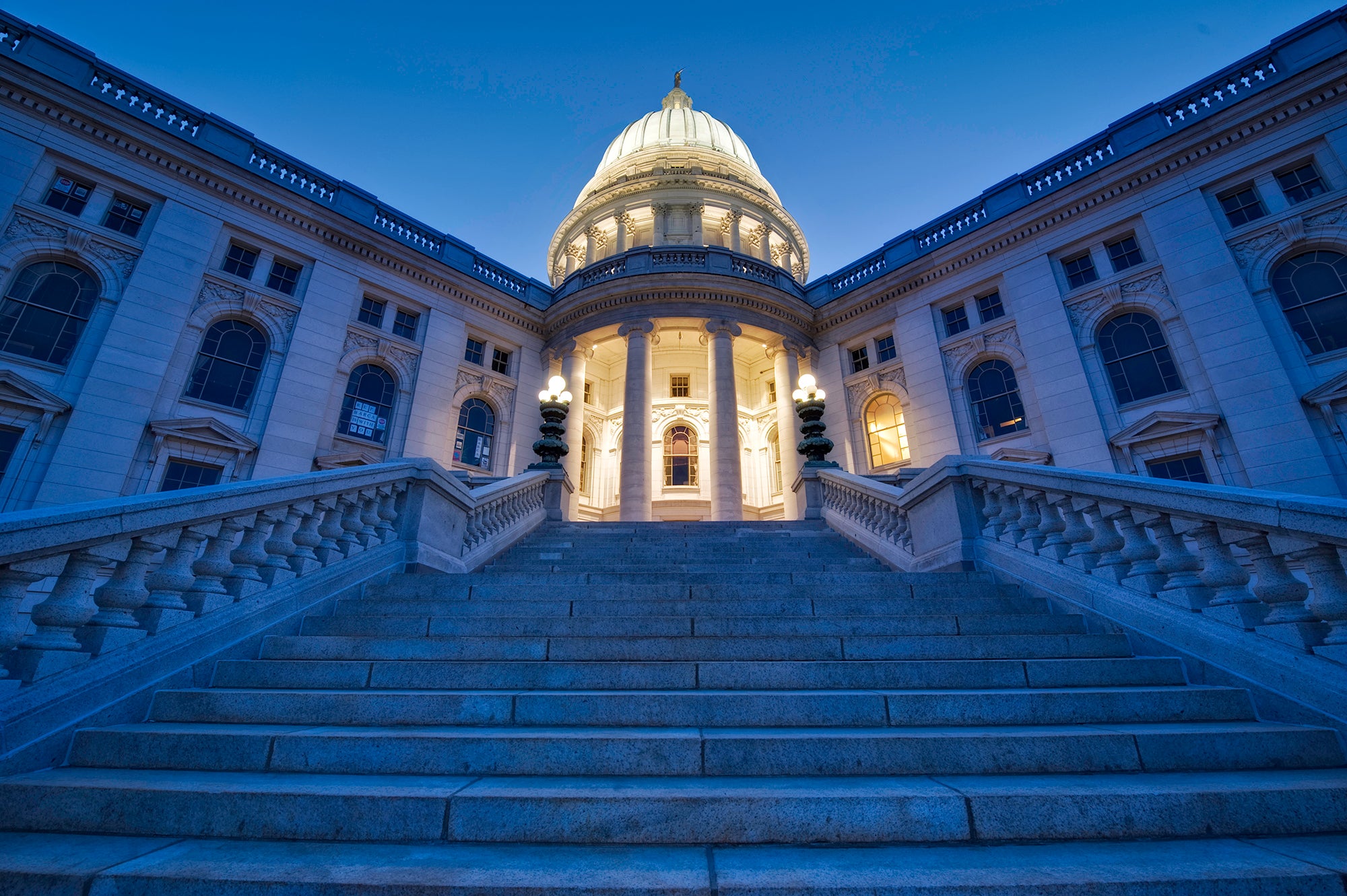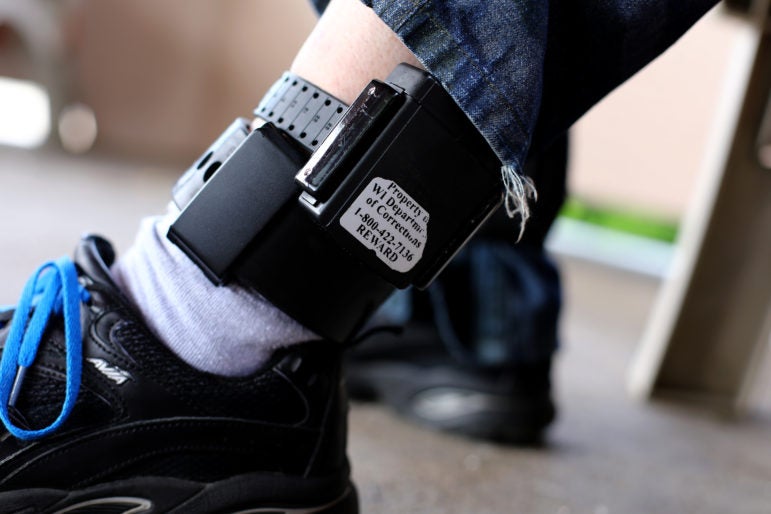The Wisconsin state Assembly put off discussion on a bill criminalizing temporary living on public property when it convened Tuesday.
The bill, AB604, moved out of the Assembly Committee on Housing and Real Estate after a party line 6-4 vote last week, with all the committee’s Democrats voting against a recommendation for the full Assembly to adopt the bill.
Under the legislation, temporary living on public property would become a Class C misdemeanor, with penalties of up to a $500 fine or 30 days in jail. It would also prevent homeless support organizations from receiving certain grants in full unless those groups can prove their efforts have helped people get permanent housing, a job or reduced the number of people experiencing homelessness multiple times.
News with a little more humanity
WPR’s “Wisconsin Today” newsletter keeps you connected to the state you love without feeling overwhelmed. No paywall. No agenda. No corporate filter.
Republican supporters have said the homelessness bill is a matter of public safety, but city officials, Democratic state representatives and workers for shelter and homelessness programs have condemned some of the bill’s many provisions. Though many of those officials acknowledged the harsh realities of the state’s housing market, some said the proposals would exacerbate ongoing housing problems rather than addressing them.
There was no indication from lawmakers Tuesday why the measure was pulled from the Assembly agenda, or if it might be considered in the future.
Other housing bills
That bill was just one part of a sweeping housing legislation package Republicans have said is meant to address a worker housing shortage across Wisconsin. Many of those other bills passed out of the Assembly on voice votes.
The exception was AB605, which would require some local governments with populations of at least 50,000 people to put at least 10 percent of any federal stimulus money from the American Rescue Plan Act toward creating new workforce housing or programs for loans for repairing older housing. That bill passed on a 59-35 vote.
Some of the other proposals included in the package received varying degrees of bipartisan support in the Assembly housing committee last week.
AB610, which would disallow property tax assessors from using certain practices to determine a property’s fair market value, passed that committee on an 8-2 vote, with the only dissents coming from state Reps. Kalan Haywood, D-Milwaukee, and Jodi Emerson, D-Eau Claire.
Meanwhile, state Rep. Scott Allen, R-Waukesha and the committee’s vice chair, joined Haywood and Emerson in voting against the bill. That bill would require cities or villages with water and sewer service to have at least one area where multifamily housing would be allowed. The legislation’s provisions would also place some limits on local government oversight of home building developments.
Still other housing proposals that passed would, among other effects, provide for sales and use tax exemptions for certain construction materials, supplies and equipment used for the development or rehabilitation of workforce housing. Those bills will now head for the Senate.
Reading tests for young students
The Assembly also voted Tuesday on legislation that would require schools to assess the reading skills of students from 4K to second grade multiple times each school year. It would also create requirements for diagnostic tests and the creation of personal reading plans for certain students considered “at-risk.”
The proposal generated significant debate, which mostly fell along partisan lines.
“What this is, is screenings that take about a minute, you can do it with multiple students at the same time, and we do them several times a year to assess where the students are,” said state Rep. Joel Kitchens, R-Sturgeon Bay, the Assembly sponsor of the bill. “A person that’s born into poverty can become anything they want if they work hard, and they have some talent, but if kids don’t learn to read, it’s shut off to them. The American dream is dead to those kids.”
Kitchens said while the bill would not be a solution to the problem, it would give schools a way to identify the problem early enough to fix it. He pointed to data from the National Assessment of Educational Progress that indicated in 2019, 34 percent of tested fourth graders in Wisconsin had not reached a basic level of reading ability.
“We are definitely in a crisis situation in Wisconsin,” said Kitchens.
State Rep. LaKeshia Myers, D-Milwaukee, joined Republicans in voting for the bill.
“I don’t care who introduced this bill, whether it was a Democrat, whether it was a Republican, whether it was Jesus himself,” said Myers. “I will still go along with this bill.”
She noted the disparities between Black and white students, though she said “this is not something that’s just a Black and white thing.”
“Let’s not act like we don’t have an issue,” Myers, a former Milwaukee Public Schools educator, said. ” I’m tired of the same data reporting the same thing year after year after year. It’s time for us to stop making excuses and actually do something.”
But many Democrats lamented the additional testing students would have to undergo if the bill became law. State Rep. Christine Sinicki, D-Milwaukee, said while students need support, testing isn’t the answer.
“One of the things that our young people need in order to be successful in school, right from the day they’re born, is they need people that are going to support them,” Sinicki said. “Instead of talking about testing, and retesting and testing some more, why don’t we talk about putting some real money where our mouths are?”
The bill ultimately passed on a 62-32 vote. Its next stop will be the governor’s desk.
Also up for discussion
Other bills under deliberation in the Assembly Tuesday included:
- AB115, which would make tuition expenses for state Department of Workforce Development-approved programs deductible from income calculations for state income tax purposes. It passed on a 60-35 vote.
- AB152, which would exempt building and plumbing plans from examination for certain smaller public buildings. It was referred to the Joint Committee on Finance before it could receive a vote.
- AB297, which would provide for harsher penalties for people who break certain traffic laws in close proximity to emergency vehicles or tow trucks. The bill would also require a public awareness campaign from the state’s Department of Transportation on the dangers of construction and maintenance areas, utility areas and emergency areas, along with the traffic laws associated with those areas. The Assembly concurred via voice vote on a Senate amendment to the bill.
The Assembly also held a ceremony at the start of its Tuesday session to honor some of Wisconsin’s first responders.
Wisconsin Public Radio, © Copyright 2026, Board of Regents of the University of Wisconsin System and Wisconsin Educational Communications Board.







